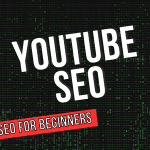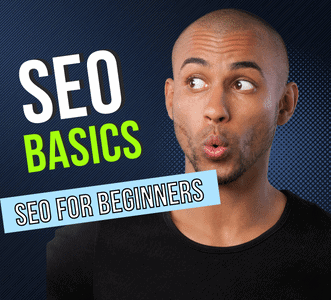Why is SEO Important?
SEO (Search Engine Optimization) is a vital part of any website's success. With SEO, people can find your content more quickly. Proper use of SEO also makes you rank higher in search engine search results. Search engine optimization involves a variety of different tasks, such as keyword research, content creation, and link building. We will go over each of these in a brief summary and expand on them in other articles on our site. Overall this is a quick start guide to SEO.
Despite the fact that there are many search engines, most webmasters focus on Google because of its popularity, giving it the most visitors of all search engines combined.
Where should the focus be? What ranking factors does Google consider when it returns results for a search query? How can you attract so much targeted traffic to your website? Google and other search engines have incredibly complicated algorithms, and while some of them are not known publicly, there are many SEO factors we do understand and will cover. Think of this as SEO for Beginners.
What Actually Works for Driving Organic Search Traffic from Search Engines?
In short, it depends on the niche that you are targeting. It's not always about keywords or links, but about creating quality content that users will find useful. Search engines love websites that have high-quality content, so when optimizing your site, keep this in mind. No matter how much effort you put into your website, if no one knows about it, it won't matter unless you can attract visitors. For this reason, basic SEO is crucial for every business. Consider this as a checklist for optimizing your website for search engines.
SEO Fundamentals
1. Keywords – One of the most important SEO strategies you should make use of is keywords in your title tags, meta descriptions, and page content based on what people type into Google when they type those words. Using free tools online like SEMRush or RankIQ will allow you to generate a list of keywords that will attract the largest number of clicks for your links.
2. Content – Your content must be informative, unique and relevant to your audience. You want them to return to your site again and again by providing them with useful information. If you don't have time to write original content, you can hire a professional writer from a site such as Helpfulwriter.com for quality fresh content that your visitors will enjoy and keep them coming back for more. Remember it's all about the user experience.
3. Linking – Linking to your website shows that people find your site to be trustworthy enough to include a link to it. This is known as “link popularity”. In search engine results, link popularity influences how highly your site ranks. Build quality backlinks to your site from other websites. Guest blogging is an effective way to do this. Link building is when other websites mention or link to your website. There are two types of links: internal links and external links. Linking internally leads readers to pages within your own site while linking externally takes them to another site. Each is equally important. Make use of both!
4. Social Media – Social media sites like Facebook and Twitter allow you to share information about your business. Make sure you have an active presence on social media so that people can find you Post regularly, engage with others and respond quickly to comments. Social media marketing is a great way to promote yourself and your business. By sharing interesting articles and other relevant content across social networks, you'll be able to reach out to potential customers who might otherwise never hear about you. Some popular platforms include Facebook, Twitter, LinkedIn, Instagram, Pinterest and YouTube. Be careful not to post spammy messages though. People will flag these posts and they could hurt your reputation.
5. Website Speed – A slow loading speed can really damage your SEO. Having a fast-loading site makes users happy, which leads to better rankings. In addition, having a fast-loading site saves bandwidth, which is good for everyone. To test how fast your site loads, go to GTMetrix.com. They'll give you a score based on the number of resources needed to load your site. If you need help improving your site speed, there are lots of great tips on our site.
6. Mobile Responsiveness – Most people now access the internet using their phones. If your site isn't mobile responsive, it won't display correctly on small screens. That means fewer people will see your site and fewer people will convert.
7. Schema Markup – Schema markup is a way of structuring data on your website so that search engines know exactly what each piece of content is. It also tells the search engine spiders how to index your site.
8. Security – Hackers love nothing more than visiting unsecured websites. Make sure all of your passwords are strong and change them frequently. Always make sure that your site has all of its security updates installed. Hackers love to target websites that haven't been updated recently.
9. Site Map – A sitemap is a list of every page on your site. Search engines use this list to determine where to place your site in the search results. The more pages you add to your sitemap, the easier it is for Google to crawl your site. In a sitemap, each URL is linked to the corresponding page on your site. Search engines use these links to discover new pages on your site. If you have many pages, consider creating an XML sitemap
10. SSL Certificate – An SSL certificate encrypts the traffic between your web browser and your server. HTTPS stands for Hypertext Transfer Protocol Secure and it ensures that no third parties can intercept any of your communications. You should always get an SSL certificate if you're selling products online.
11. Title Tags & H1 Headings – These tags tell search engines what your site is about. Make sure that you write unique title tags for each page on your site. Also, don't forget to use keywords in your titles. H1 headings are used to describe different sections of your site. Don't just use them as a catchall; use them to highlight specific areas of your site.
12. Web Analytics – Web analytics tools collect information from visitors to your site. This includes things such as how many times someone visits your site, what time of day they visit, etc. There are tons of free tools available but some offer paid versions too. Free options include: Google Analytics, Quantcast, Hotjar, Mixpanel, and KISSmetrics.
13. Optimize Images – Images play a huge role in determining whether or not your site ranks well in search engine results. Optimizing your image sizes is an effective method of increasing your chances of ranking high in search results. Make sure to resize your images using Photoshop or another photo editing program. By uploading images to sites like TinyPNG.com, images can be resized automatically.
14. SEO Tools – There is a wide variety of both free and paid SEO tools out there. The following tools are our favorites: Google Keyword Planner, SEMRush, Ahrefs, RankIQ , MajesticSEO, and Screaming Frog.
Mastering the Basics of SEO
Although this list may seem daunting, these Search Engine Optimization practices are used by most top ranking sites. High quality pieces of content using target keywords is more important than anything else. Your efforts to gain visitors will be in vain if your site does not have good content, because visitors will quickly leave a low quality site. By having your visitors remain longer you lower your bounce rate and provide a positive user experience. Establish yourself as an authority by creating an informative site that offers value to your visitors.
Looking for a high quality affordable content writer then check out www.helpfulwriter.com














